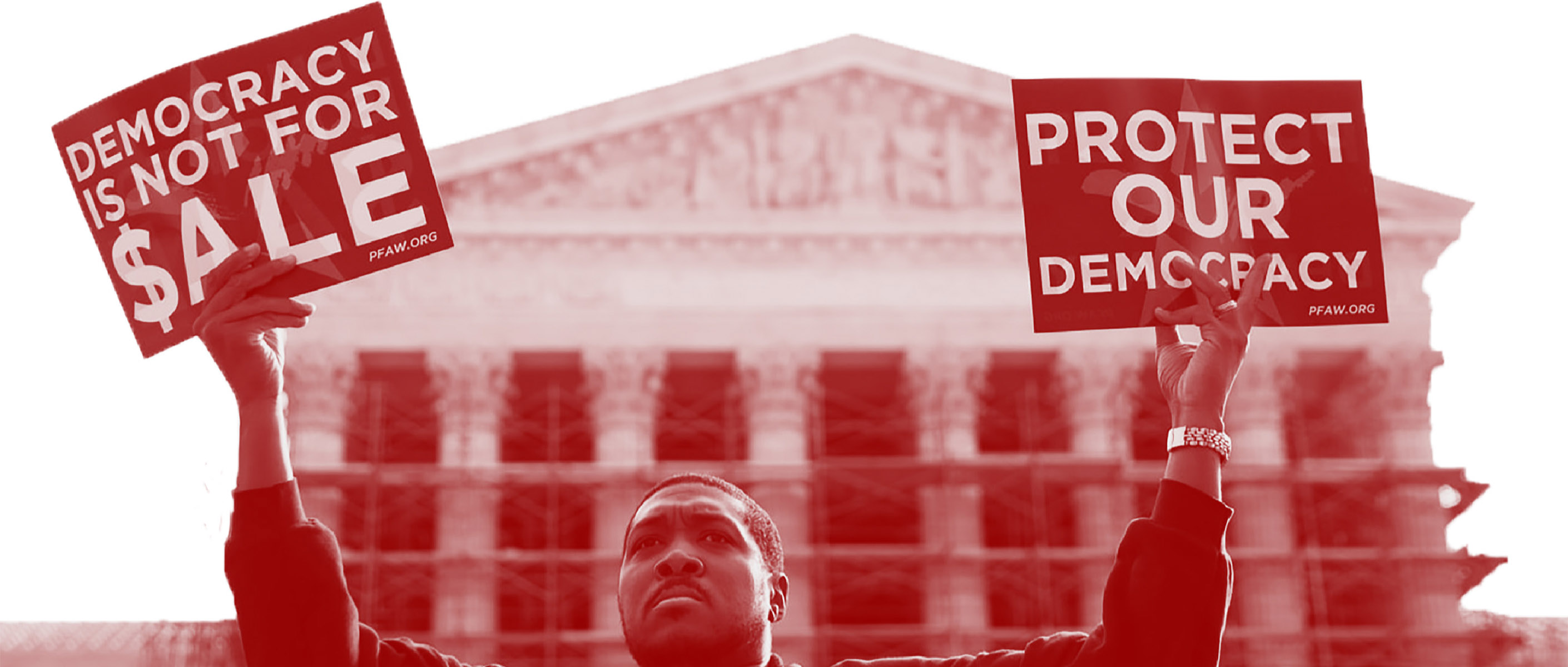To: Interested Parties
Date: May 22, 2017
Today, the Supreme Court affirmed the right of lawmakers and voters to establish common-sense checks on the power of wealthy campaign donors in our democracy, despite wrongly restricting that right in previous cases in recent years. However, newly-confirmed Justice Gorsuch's dissent in the case confirms warnings by democracy advocates that he'd side with big donors over everyday voters and demonstrates how President Trump's judicial nominees could further entrench the power of America's wealthiest citizens.
Specifically, the Court rejected a constitutional challenge to the federal “soft money” restrictions on contributions to state parties passed as part of the Bipartisan Campaign Reform Act. The restrictions prevent wealthy donors from circumventing federal campaign contribution limits with unlimited donations to political parties. Today’s summary ruling affirms the three-judge district court’s decision in Republican Party of Louisiana v. FEC.
"The decision today reaffirms that Congress clearly has the authority, consistent with the First Amendment, to require that money spent by state parties to influence federal elections be subject to federal contribution limits," says Democracy 21 President Fred Wertheimer.
“Without these soft money limits, political parties would again become vehicles through which big donors would attempt to buy influence over elected officials and their policy decisions," said Campaign Legal Center Deputy Director Tara Malloy.
"It is truly significant that today’s decision confirms that the ban on direct corporate contributions is constitutional,” said Public Citizen lobbyist Craig Holman.
The summary ruling is at once a confirmation of past precedent and a surprising, but welcome, departure from the the conservative majority's systematic elimination of protections against big money.
The Supreme Court twice upheld the soft money ban on previous occasions, first in the Court’s 2003 decision in McConnell v. FEC and then in another summary ruling of a 2010 case, RNC v. FEC.
The Roberts Court's History of Siding With Big Donors
At the same time, Demos has documented how the Roberts Court has issued a series of rulings striking down campaign finance rules and limiting our right to ensure we all have an equal voice in our democracy and an equal chance to elect representatives who share our values and are accountable to us.
Since 2010, the Roberts Court has struck down the following protections against big money: bans on corporate spending on candidate elections (Citizens United); providing additional “matching funds” to publicly financed candidates who face big money spending by opposing candidates or interest groups (Arizona Free Enterprise Club PAC); limits on the total amount one wealthy donor can contribute to candidates, parties, and political committees (McCutcheon). According to Demos, these and other rulings resulted in an additional $3 billion in federal election spending in 2016.
Today's ruling shows that there are still limits to how far the Court's conservative majority will go in striking down laws protecting our democracy from big money, but it doesn't change the Court's fundamentally flawed approach to money in politics. "Future democracy-friendly justices can join their open-minded colleagues to repair the damage the Court has inflicted by ignoring core democratic values and treating unlimited political spending as the equivalent of protected speech," writes Demos Senior Counsel Adam Lioz.
President Trump's Judicial Nominees Threaten Protections Against Big Money
As one of only two dissents in today's ruling, Justice Gorsuch confirmed that he agrees with the Court's flawed approach to money in politics and would in fact like to extend it even further. If President Trump is able to confirm more justices like Gorsuch, the soft money ban and other basic rules to ensure government by the people could be struck down in the future. For that reason, future nominees' records on money in politics will be an important topic of debate, as it was following Gorusch's nomination.
Last week the Senate Judiciary Committee advanced the nomination of Judge Thapar for the the Sixth Circuit. A coalition of 24 groups oppose his nomination because he would exacerbate the power of big donors. In a letter to the committee the groups wrote, "Thapar would make it even harder than it is now for everyday people to be heard and affect who runs for office, who wins elections, and what issues get attention; and easier for powerful politicians to make secret wink and nod deals with their richest contributors."

